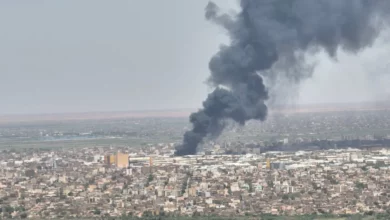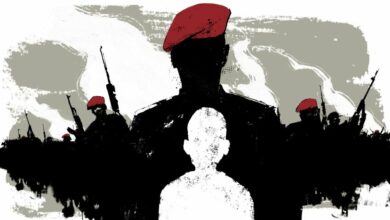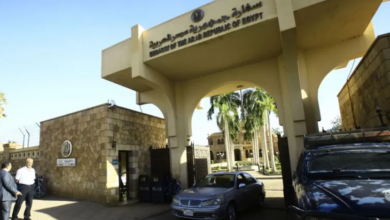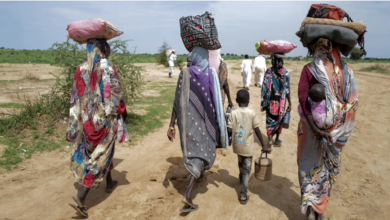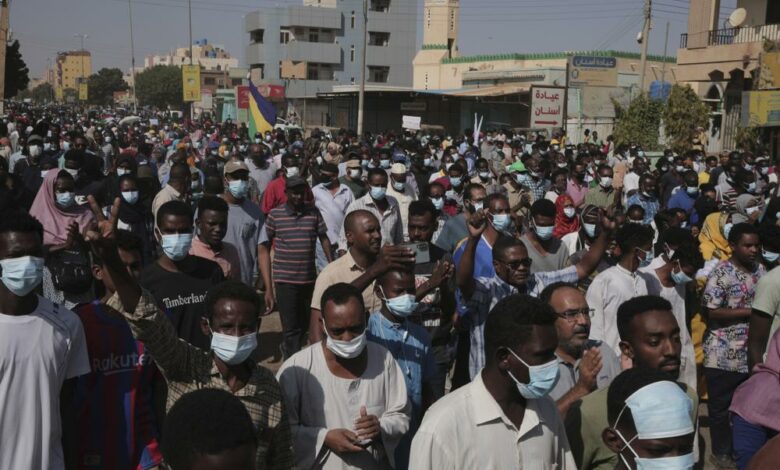
KHARTOUM, Sudan (AP) — Two more Sudanese protesters died in the hospital from wounds after being shot during mass protests over the weekend against last month’s military coup, a doctors union said Monday.
That raises the death toll from Saturday’s protests to seven, all but one from gunshots, the Sudan Doctors Committee said. More than 200 others were wounded when security forces used live ammunition and tear gas to disperse protesters in the capital of Khartoum and its twin city, Omdurman, the committee said.
Sudanese police denied using live ammunition, saying its forces only resorted to tear gas to disperse demonstrators allegedly attacking police stations and vehicles. They said at least 39 policemen were wounded in Saturday’s clashes.
Thousands of pro-democracy protesters took to the streets across Sudan on Saturday to rally against the military’s takeover last month.
The Oct. 25 coup upended a fragile planned transition to democratic rule, more than two years after a popular uprising forced the removal of longtime autocrat Omar al-Bashir and his Islamist government.
The coup has drawn international criticism and massive protests in the streets of Khartoum and elsewhere in the country. At least 23 protesters were killed since Oct. 25, according to the doctors committee.
The committee said the new deaths include 13-year-old Remaaz Hatim al-Atta, who was shot in the head in front of her family’s home in Khartoum, and Omar Adam who was shot in the neck during protests, also in Khartoum. Both were shot on Oct. 25 and pronounced dead in the past 24 hours, it said.
Saturday’s demonstrations came as the military has tightened its grip on power, appointing a new, military-run Sovereign Council. The council, chaired by Gen. Abdel-Fattah Burhan, held its first meeting on Sunday, and issued a statement saying that a civilian government would be formed in the coming days.
The appointment of the council has angered the pro-democracy alliance and frustrated the United States and other countries that have urged the generals to reverse their coup.
U.S. Assistant Secretary of State for African Affairs Molly Phee was in Sudan to push for a solution to the crisis, through the release of government officials and politicians arrested since the coup, the return of Prime Minister Abddalla Hamdok to office and the restoration of his government, according to a statement from the State Department. Hamdok has been under house arrest since the military’s takeover.
Phee’s visit includes meetings with Sudanese leaders from the government, political parties and civil society, the statement said.
Cracks, meanwhile, started to surface among the pro-democracy movement over a call by a group of political parties and movements to return to the pre-coup power-sharing deal between the protesters and the generals.
The Sudanese Professionals Association, which spearheaded the uprising against al-Bashir, criticized the call, insisting on the military fully handing power over to civilians.
The association said it would work with the Resistance Committees and other groups that are part of Sudan’s pro-democracy movement to topple the military council and establish a civilian government to lead the transition to democracy.

